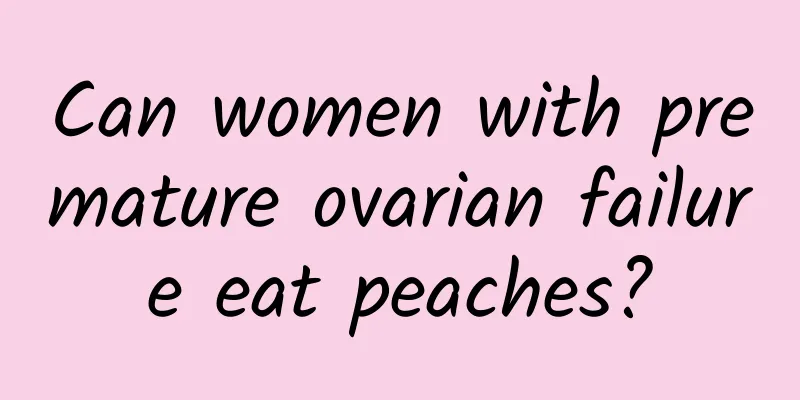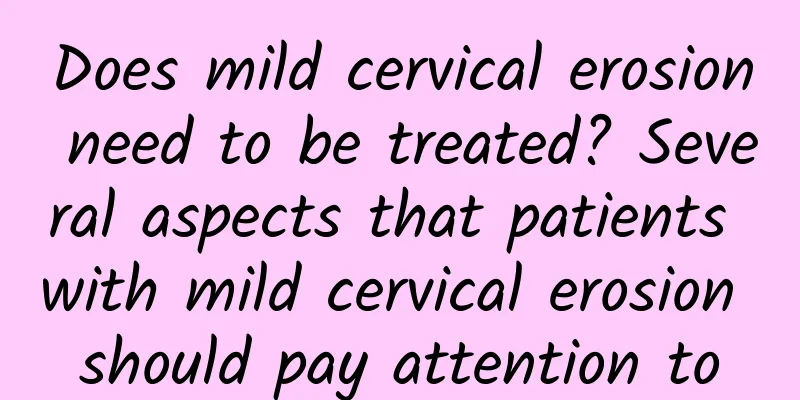Can women with premature ovarian failure eat peaches?

|
Patients with premature ovarian failure can eat peaches in moderation, but peaches cannot directly treat premature ovarian failure. Instead, they provide nutrients that are beneficial to the body, such as vitamins, minerals and antioxidants. To better cope with premature ovarian failure, dietary adjustment is only auxiliary, and conventional treatment and improvement of living habits are the key. 1What is premature ovarian failure and the role of peaches Premature ovarian failure is a disease in which a woman's ovaries stop functioning earlier than normal, which may lead to menstrual disorders, infertility, premature aging and other problems. Peaches, as a fresh fruit, are rich in vitamin C, fiber and antioxidants, which can help reduce oxidative stress, improve body metabolism, and contribute to the maintenance of women's overall health. However, the role of peaches is mainly to supplement nutrients and improve immunity, and it is difficult to have a direct effect on the recovery of ovarian function. 2 Possible causes of premature ovarian failure The causes of premature ovarian failure are complex, including genetic factors such as family history, external environmental pollution, long-term mental stress, autoimmune diseases, etc. It may also be caused by trauma such as pelvic surgery and chemotherapy. Malnutrition and excessive dieting also have an adverse effect on women's endocrine regulation. Clarifying the causes is the prerequisite for treating and managing such diseases. 3 Treatments for premature ovarian failure Hormone replacement therapy (HRT): This is one of the commonly used treatments. It regulates hormone levels and relieves symptoms by supplementing estrogen and progesterone. Before use, you need to consult and follow up regularly to detect its effects and risks. Auxiliary medication: such as supplementing vitamin D and calcium to prevent the risk of osteoporosis; you can also choose Chinese medicine to improve circulation according to the doctor's advice. Assisted reproductive technology: For women who want to have children, they can try in vitro fertilization technology, but the success rate may be affected. 4. Diet and lifestyle management recommendations Dietary adjustment: Eat more foods rich in phytoestrogens such as soy products; pay attention to a balanced diet, and fruits containing antioxidants such as peaches and blueberries can be chosen in moderation. Adjust your lifestyle habits: maintain a regular schedule and reduce staying up late; moderate exercise such as yoga and brisk walking can help relieve stress and promote endocrine balance. Psychological counseling: Long-term psychological stress will aggravate symptoms. Regular psychological decompression or seeking professional psychological help is also part of comprehensive treatment. Patients with premature ovarian failure can eat peaches in moderation as an auxiliary conditioning, but this cannot replace medical intervention and systematic treatment. It is recommended to undergo standardized treatment under the guidance of a doctor and combine it with a healthy lifestyle to better improve the condition and maintain overall health. |
<<: Is it easy to get pregnant with an IUD if the cervix is enlarged?
>>: What are the symptoms of inflammation after abortion?
Recommend
How much does a pelvic peritonitis test cost?
Pelvic peritonitis is a disease that often occurs...
What are the dangers of hyperprolactinemia?
What are the dangers of hyperprolactinemia? Many ...
A small folk remedy for amenorrhea - foot bath
Amenorrhea may be caused by imbalanced physiologi...
How to diagnose early cervicitis?
Female cervicitis is a common gynecological infla...
Fat terminator! Enoki mushroom ice cubes are great in cooking
The Minor Cold in the 12 solar terms has just pas...
Rainbow snacks whet your appetite! Rainbow popsicles, rainbow power water, 5 dishes, healthy and pleasing to the eyes
Do you have to eat vegetables every day to mainta...
Food poisoning: 2 items of Sanhe Soymilk King in New Taipei City are unhygienic
The New Taipei City Government Health Bureau rece...
What medicine is the best for women with cervical erosion? What should you pay attention to during the treatment of cervical erosion?
What is the best medicine for cervical erosion? F...
Will uterine fibroids affect pregnancy? How big will uterine fibroids affect pregnancy?
Uterine fibroids are a common gynecological tumor...
Which department should I go to when I go to the hospital to see if I have cervical precancerous lesions?
Which department should I go to for cervical prec...
What are the causes of adnexitis in unmarried women?
According to medical research, adnexitis is not a...
Korean girls' secret to youthful looks: Drinking acai berry drink
A few days ago, the Korean website DCINSIDE relea...
What are the treatments for chronic cervicitis?
Chronic cervicitis belongs to the category of &qu...
What to eat after congenital absence of vagina surgery
What is good to eat after surgery for congenital ...
What does chocolate cyst mean? Is it serious?
Chocolate cyst, medically known as endometriosis ...









